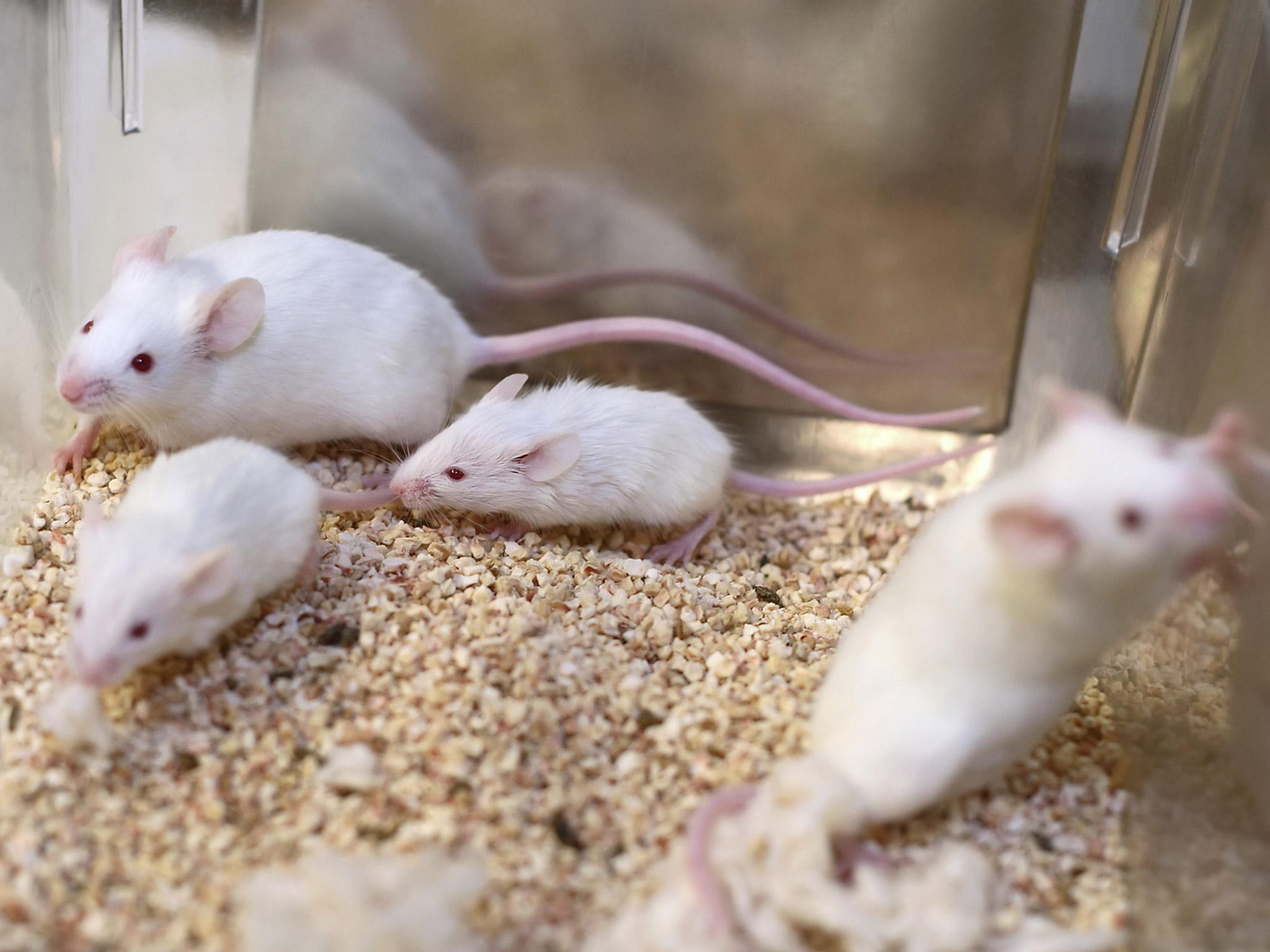The Independent's journalism is supported by our readers. When you purchase through links on our site, we may earn commission.
Scores of scientific studies based on mice thrown into doubt because they were picked up by the tail
Mice picked up by the tail – standard practice in labs – are stressed and anxious so don't act naturally in some experiments, new study finds

Scores of scientific studies based on mice are being called into question because their behaviour is affected by the way they are handled during experiments.
The usual way they are moved to a different place in the lab is by picking them up by the base of their tail.
But a new scientific study, funded by the National Centre for the Replacement, Refinement & Reduction of Animals in Research (NC3Rs), found that while this does the mice no physical harm, it causes stress and anxiety.
And that, the researchers say, had a significant impact on the way they behaved during testing.
However, when a specially designed “tunnel” was used to take the mice somewhere else, the problem disappeared and the mice appeared to be a lot happier.
They also seemed more willing to approach a lab assistant who used a tunnel than one who held them by the tail.
One of the researchers, Professor Jane Hurst of Liverpool University, said: “The method used to pick up laboratory mice has a surprisingly strong influence on their anxiety, and our study shows that this has a major impact on the reliability of their behavioural response to test stimuli.
“A simple change to picking up mice up in a tunnel rather than by the tail could have a really positive impact on the wide range of research that relies on behavioural testing, as well as improving the wellbeing of test animals.”
And Dr Mark Prescott of NC3Rs said: “This study provides further evidence for the need to shift away from tail handling of laboratory mice, this time for scientific reasons.
“Tunnel handling should be the method of choice for researchers conducting behavioural tests with these animals.”
A paper about the study, published in the Scientific Reports journal, described how the scientists had tested the mice’s behaviour using urine from the opposite sex, which they normally find attractive.
However mice who had been recently picked up by the tail to be transferred to the test area unusually showed little interest in the scent. Some completely failed to sniff the urine even once.
But those who had been transferred in the tunnel explored the test area enthusiastically and were very interested in the scent.
Normally a new smell is more intriguing to mice and this was seen in those transferred in a tunnel, but tail-picked mice showed now difference between the two scents, on the relatively rare occasions when they smelled them.
Mice are one of the most common animals used in lab experiments, including ones designed to help understand memory, learning, how drugs affect the brain and other cognitive processes.
If the mice’s behaviour was altered by the way they were handled, this could have an effect on the results of numerous studies.
In the Scientific Reports paper, the researchers wrote: “Handling laboratory animals during test procedures is an important source of stress that may impair reliability of test responses.
“Picking up mice by the tail is aversive, stimulating stress and anxiety. Responses among anxious animals can be confounded further by neophobia [fear of something new] towards novel test environments and avoidance of test stimuli in open areas.
“However, handling stress can be reduced substantially by using a handling tunnel, or cupping mice without restraint on the open hand.”
NC3Rs, Prof Hurst and colleagues have now created a video showing how to handle mice in the lab to reduce their stress.
NC3Rs has announced 2017 to be the “Year of Laboratory Rodent Welfare”.
Join our commenting forum
Join thought-provoking conversations, follow other Independent readers and see their replies
Comments
Bookmark popover
Removed from bookmarks